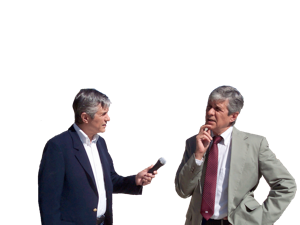An Interview



A short interview with Sam Coleman, by Sam Coleman
S: You’ve had a varied career. A PhD in cultural anthropology with research on fertility limitation in Japan, then research and program development in Japanese science, technology and society, then—social work?!
S: Yes, and every experience helped me gain versatility, new concepts, and a fresh perspective on what’s worth teaching, researching, and writing about. Plus some colorful vignettes to use, too! My shifts in specialties resulted from a rapidly changing, extremely difficult academic job market ever since the late 70s, plus the needs of a two-career academic marriage with children since the 80s.
S: What are your values? Your ideals?
S: I want my efforts in research, writing, and teaching to help demystify human behavior and social relationships. We crave the authentic, but we also have to recognize and deal with our own and others’ agendas of self-deception and political self-promotion. At risk of sounding corny, I’ve long loved the phrase, “To be rather than to seem.” I first heard that when I lived in North Carolina. (It’s the state’s motto.)
S: So you want to do work that helps folks see themselves more honestly?
S: Remember, you asked for ideals. By the way, I don’t see people as intrinsically good or bad. I want to understand the factors that bring out the best (and worst) in people. This isn’t just the age-old, person-to-person relationship problem, either. Our culture’s slick mass media and CG virtual infotainment aggravate that unfortunate tendency for dishonesty and manipulation, paving the way for alienation and thought control. Couple that with the growing concentration of wealth and power in the United States these days, and it’s a really unhealthy situation.
S: Where does intellectual foot work fit in?
S: Much of academic social science has been missing in action when it comes to pointing out and analyzing those harmful developments. I have a theoretical orientation known as cultural materialism. It says to us social and behavioral scientists that we have to get serious about describing “who’s doing what to whom,” and it also says we’re responsible for the “why,” too—we have to try to explain it all, as a moral imperative. It means using science, which can and should serve human needs. Good writing is part of the recipe, too. It’s the obverse of George Orwell’s observation that bad writing reflects dishonest politics.
S: I don’t think you’re going to land a job in any PR firm with talk like that.
S: Depends on their clients.
S: Fair enough. Speaking less abstractly, where do you want to go from here, professionally?
S: I want work that makes use of my strengths. If I were asked to name an ideal job, it would be to play a part—no matter how modest and indirect—in turning around the drastic concentration of wealth and influence in the United States today. I want to see resources invested in human needs and infrastructure, to rechannel at least some of the stupendous sums now going to militarism and a violence-oriented foreign policy. So many other problems stem from those trends. There are so many different approaches to the task at hand, and all of them constructive.
S: Like?
S: Teaching, research, or program development could all play a role. I hope someone with a budget contacts me so we can conspire.




